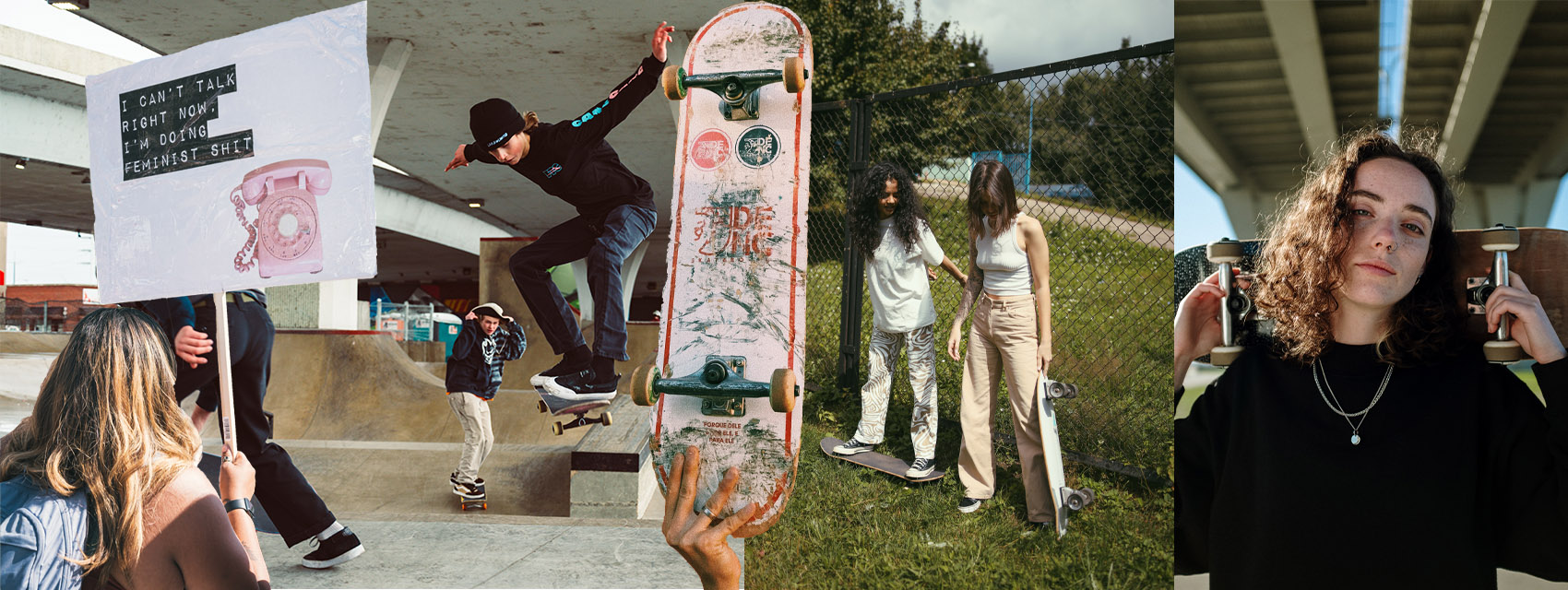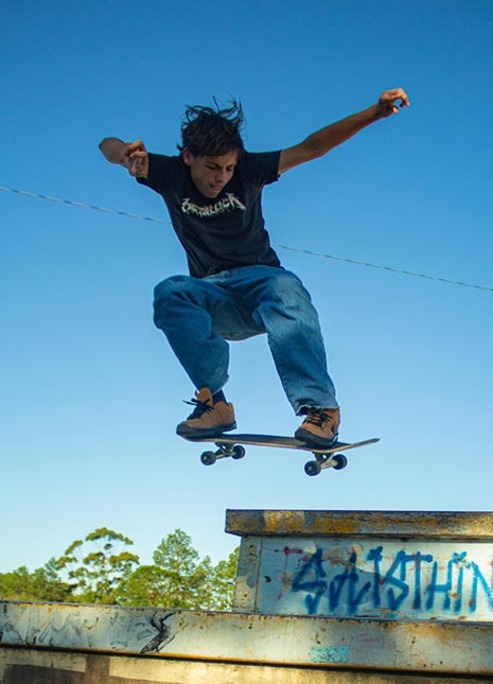Rape Culture In The Skate Scene: Why It Needs To Be Addressed
Up until very recently, skateboarding has typically been considered a man’s sport. But with the rise of social media, the world has seen an influx of female, non-binary (NB) and gender non-conforming (GNC) skaters.
The growing diversity within the community has brought the darker side of the skate scene to the surface but with that comes a glimmer of hope: we can now address these issues which have been ignored for so long.
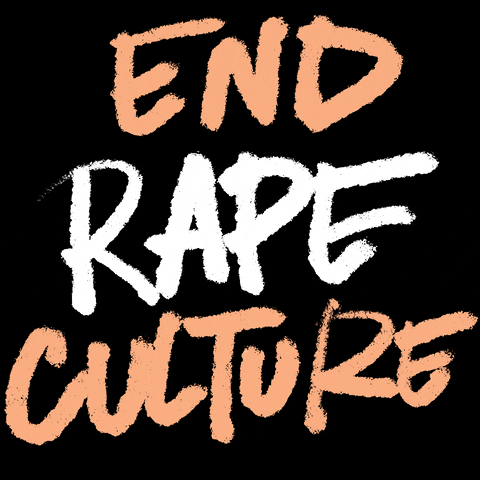
Although a lot of female and GNC skaters felt a warm welcome into the world of skateboarding, a lot of people were also met with a shock to overhear some of the comments and conversations that were so casually dropped at skateparks. It's something that, until quite recently, was self-contained within the walls of male-to-male “banter”. This is so dangerous because it allows people to think they can get away with abusive behaviour.
In order to be able to call people out, we firstly need to understand exactly what rape culture is. We’ve put together a few examples and their solutions that should hopefully shed light on the situation, as well as help people identify the social attitudes that indicate someone may treat sexual assault as the norm.
Rape Jokes
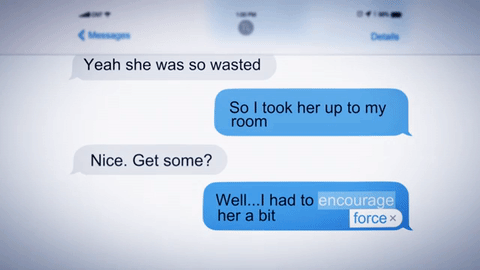
One of the most casual yet triggering examples of rape culture is the use of throw-away rape jokes. Firstly, it downplays the severity of rape and the trauma that victims go through. Not only that but the use of these kinds of jokes in a public space enables younger members of the community and exposes them to this behaviour, which therefore makes them think it is acceptable and ‘normal’. We all also have no idea what people around us have been through so we really can’t be sure who might be suffering from a similar, traumatic experience and could seriously be triggered by these kinds of remarks.
Slut-Shaming
By judging someone on their clothing choice or how many sexual partners they’ve had, we’re directly upholding the oppressive views that people “ask for” or “deserve” to be raped. It is also not sex-positive or progressive to assume that someone who wears revealing clothing is therefore “DTF”.
Victim-Blaming
Slut-shaming can quite quickly turn into victim-blaming, there is a lot of crossover between the two but victim-blaming mainly holds anyone who is a victim of rape or sexual assault, accountable for the actions of their oppressor/perpetrator.
We’ve all heard the reports of police officers asking victims “why were you there on your own at that time of night?”, “what were your wearing?”, “did you clearly say no?”.
Comments like these not only make the victim feel guilty or that they could have done more but they beg the question “did the perpetrator know you didn’t want it?”.
This is dangerous because it starts to give a leeway to the innocence of the accused and almost gives a way for them to be let off the hook. No matter where someone is, at what time and what they’re wearing, no one deserves to be objectified, assaulted or raped and it is the duty of the educational system to teach young people that this kind of behaviour is not acceptable.
It is a very backwards way of thinking and can also be detrimental to the mental health of the survivor. Not only that but again it normalises rape culture.
Expecting Victims To Be Responsible For Preventing Rape

A lot of the time this is supposed to be protective of anyone who may be at risk of being raped but by telling someone not to dress a certain way or to be home by a certain time, is putting an extreme amount of pressure on them to feel they must protect themselves. It can also make people feel very anxious and that they can't live a normal life, often having to adapt their plans so that they don't end up in a dangerous situation.
Not Asking for Consent
Often in social nightlife situations like parties, pubs, clubs or anywhere alcohol is involved, there seems to be, so often, a line crossed by men where they assume someone might be ‘up for it’ and therefore force themselves on them. Often it can be a misunderstanding which could quite easily be solved with a bit of communication but it is absolutely everyone’s responsibility to make sure everything is above board and consensual. This can be difficult but it is important as some people who try to be polite or don’t want to offend people can feel backed into a corner with no way of saying no. If someone seems awkward or you realise you’re not actually sure if they’re enjoying themselves, the most obvious solution is to just ask if they’re ok. Consent is cool and no one will be offended by the fact you’ve actually raised a tricky subject.
Practising consent in everyday situations can really help to build up a culture of consent which will then help to educate younger generations.
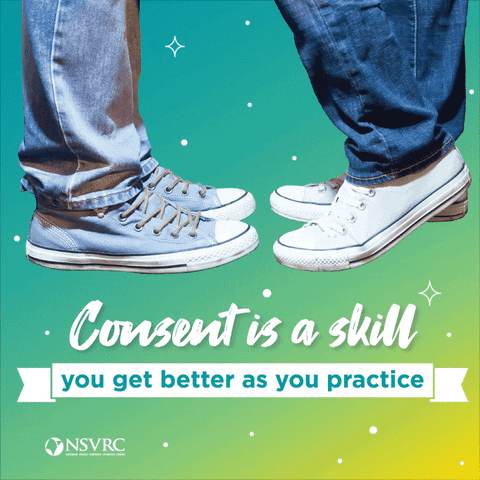
Objectifying People
Objectifying someone can span anywhere from catcalling to commenting on their body. It is dehumanising and creates a separation, therefore alienating the person and making it easier to assault them. It’s really just a case of thinking before you speak and putting yourself in someone’s shoes - ask yourself “would they really appreciate this comment?”.
Violating Privacy/Boundaries
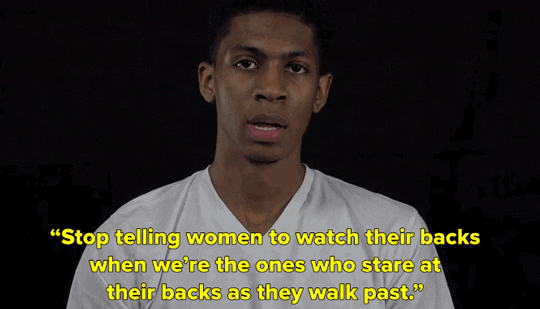
Again this can start off as what people may see as ‘harmless jokes’ but can quite quickly escalate to physically violating someone. This can range anywhere from touching someone without their consent (including slapping their behind, touching waist, thighs or genitals), to using derogatory language such as ‘bitch’ or ‘slut’, asking inappropriate questions to do with someone’s gender, sexuality or sexual preferences or just not leaving someone alone when they’ve asked you to. There are many other examples but it can, again, be a case of misunderstanding so, practising consent in everyday situations can really help to build up a culture of consent which will then help to educate younger generations.
Calling People Out
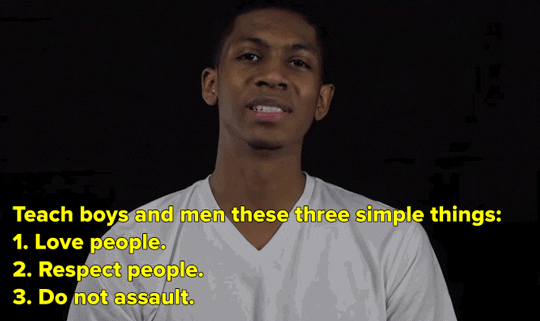
It is everyone’s duty to pick up on antisocial behaviour and it is no different within the skate scene. It is important that we do it in a compassionate and understanding way and try not to make people feel guilty or embarrassed for not being properly educated. A lot of this behaviour is learnt and therefore can be the result of a lack of positive role models or possibly a parent who has harboured these negative views whilst raising their child(ren). For this reason, exactly, it is always best to sit people down somewhere quiet and ask to have a chat rather than having a go at them within earshot of younger skaters or members of the public. If someone feels attacked, they’re much more likely to become defensive and not take on board what you’re saying than if they feel like you genuinely have their best interests at heart. It can be tough, especially if you’re calling out your mates but the majority of people do want to better themselves and will appreciate kind words - especially if they are going through a hard time. We know all too well that hurt-people, hurt people; this does not excuse or allow predatory or abusive behaviour but approaching a scenario with compassion will always have the best possible outcome.
We understand it’s a difficult subject but rape culture is a conversation long overdue. We see time and time again in movies and in the music industry, stories of sexual assault, objectifying lyrics and scenarios that continue to perpetuate this idea that people are possessions. It has warped the minds of so many young men and boys but there has been a massive rise in politics that fight these societal norms and it is so great to see members of the skate community coming together to continue to battle it.
If you’re worried that you or someone you know has been affected by any of the aforementioned subjects in this article, there are a number of services where you can speak freely to someone who will point you in the right direction of long-term help, should you need it:
- a doctor or practice nurse at your GP surgery
- a voluntary organisation, such as Women's Aid, Victim Support, The Survivors Trust or Survivors UK (for male victims of sexual assault)
- the 24-hour freephone National Domestic Abuse Helpline, run by Refuge, on 0808 2000 247
- the Rape Crisis national freephone helpline on 0808 802 9999 (12-2.30pm and 7-9.30pm every day of the year)
- a hospital accident and emergency (A&E) department
- a genitourinary medicine (GUM) or sexual health clinic
- a contraceptive clinic
- a young people's service
- in the UK and Ireland, Samaritans can be contacted on 116 123 or email
- in the US, the National Suicide Prevention Lifeline is at 800-273-8255 or chat for support


